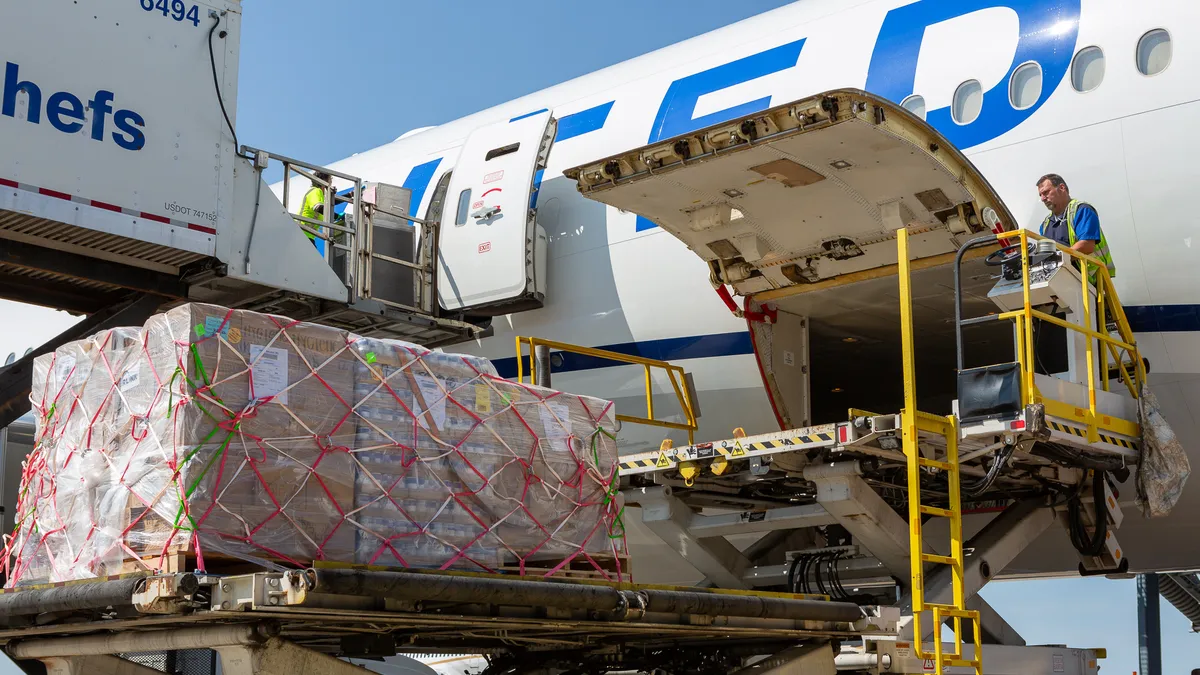After more than 10 years of progress, the Drug Supply Chain Security Act finally took effect last month, meaning drugmakers and distributors must now provide end-to-end visibility for their products.
The law requires companies to develop systems to share unit-level data for serialized products. If a pharmaceutical manufacturer is unable to provide that data, products cannot legally be moved to the next step in the supply chain.
Concern over industry readiness to meet the track and trace requirements has been an ongoing issue, prompting the FDA to delay the implementation date several times. Even after finalizing last month’s implementation date, the FDA is issuing some exemptions for those still facing issues with exchanging electronic tracing data, with new deadlines extending into 2025.
Drug distribution company Cencora has been preparing for the DSCSA for the past decade, Matt Sample, SVP of manufacturer and replenishment operations, and Gregg Gorniak, VP of manufacturer operations and data services, told Supply Chain Dive.
The drug distributor, which works with both independent pharmacies and large health systems, is helping manufacturing trading partners comply with the law by offering feedback on DSCSA data exchanges regarding the movement of pharmaceutical products. Cencora is also making efforts to ensure that all partners are exchanging DSCSA data ahead of the 2025 deadlines for companies with exemptions.
Currently, all of Cencora’s distribution centers are active and capturing inbound and outbound data, and the healthcare company is already receiving more than 90% of data from its manufacturers. While that data may not be 100% “clean” — a trend Sample and Gorniak said is industry-wide — they suggest the time before an exemption deadline can be used to resolve quality and data issues to avoid having to halt products from moving to the next step in the supply chain.
Supporting compliance
In the days leading up to the initial Nov. 27 deadline, Cencora was focused on helping non-compliant manufacturers determine what they needed to do to qualify for the exemptions announced in October.
Most trading partners have taken steps to meet the implementation deadline, with less than 10% of companies estimated to have not made any progress, according to Sample and Gorniak. If a non-compliant partner showed they made efforts to qualify for a waiver, exception or exemption by Nov. 27, they still received the exemption.
“Given the way the FDA’s exemptions are written, we expect all trading partners to qualify for the exemption,” they said.
In the meantime, Cencora sees the eligible exemptions as an “opportunity to further refine our processes around serialized data sharing across the supply chain.”
However, manufacturers lacking specific processes or teams in place to manage exemptions may face issues.
To help mitigate further challenges, Cencora said it is helping customers understand what exemptions and dates are applicable to their company to ensure their drug products keep moving.
“We’re also walking our downstream dispensing customers through a new added step in the returns process to capture the Standardized Numerical Identifier (SNI), ensuring the serialized data of the returned product matches the account and invoice of the original shipment,” Sample and Gorniak said.
While new exemptions will delay the returns process step until 2025, Cencora will keep customers informed of any deadline updates.
“In the meantime, we’re recommending returning products to the distributor from whom they were purchased to refine DSCSA reports and ensure a smoother process when the new step is implemented,” they added.
What now?
Full implementation of the DSCSA has been a long time coming. As eligible drugmakers and distributors prepare for the 2025 deadlines, Sample and Gorniak said that manufacturers should continue to test and validate their current systems and establish risk management plans in case there are any possible disruptions or informational gaps.
The interim time period should also be used to “refine existing processes, adapt standard operating procedures (SOPs) and practice with the DSCSA reporting and returns,” while hospitals and health systems can work to eliminate any errors and exemptions.
“They, too, should be focused on establishing proper SOPs for specific issues including receiving a product with missing data, identifying a suspect product and reaching out to distributors to start an investigation,” according to Sample and Gorniak.
They added that manufacturers must also be ready to use specified global location numbers to track shipments, invoices and payments for drug products.
“There was a lot of work over the last two years getting these GLNs assigned for all of these locations, and in some cases, duplicates were created, so now we’re continuing to help our customers tidy those up and ensure that everyone’s systems match,” Sample and Gorniak said.





















